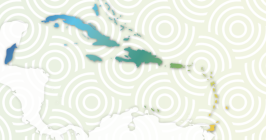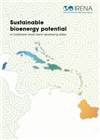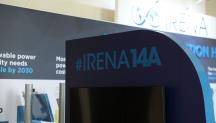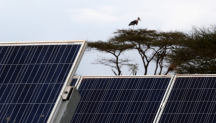

-
-
IRENA (2014), Sustainable bioenergy potential in Caribbean small island developing states, International Renewable Energy Agency, Abu Dhabi.
Copied
https://mc-cd8320d4-36a1-40ac-83cc-3389-cdn-endpoint.azureedge.net/-/media/Files/IRENA/Agency/Publication/2024/Feb/IRENA_Sustainble_bioenergy_Caribbean_SIDS_2024.pdf?rev=fa0dfc6f84be4101ab08adc3cbf2e02f
Copied
Sustainable bioenergy potential in Caribbean small island developing states
Newsletter
This IRENA study on sustainable bioenergy in the Caribbean provides a holistic view of the bioenergy potential in six small island developing states in the Caribbean region – Cuba, the Dominican Republic, Haiti, Jamaica, Trinidad and Tobago, and Guyana. The report assesses the potential for using various feedstocks, such as sugarcane, oil palm and municipal solid waste, to produce bioenergy, taking into account the crucial balance between ecological health and socio-economic benefits in these states.
The study presents a detailed assessment of the available land for bioenergy crops, estimating around 2.15 million hectares across the six countries. It highlights the opportunities for producing significant quantities of biofuels including ethanol and biodiesel, as well as the feasibility of generating bioelectricity. This is all evaluated within the context of existing technological capabilities and environmental considerations, aiming to provide a sustainable approach to energy needs while acknowledging related challenges and limitations.
The report offers a nuanced perspective on the role of bioenergy in the Caribbean’s future energy landscape. It outlines the potential environmental benefits – such as reduced carbon emissions – and economic advantages, like job creation. However, it also recognises the uncertainties and challenges involved in realising this potential, emphasising the need for careful consideration and planning. The findings aim to inform and guide policy-makers and stakeholders in making informed decisions about the region’s energy future.




